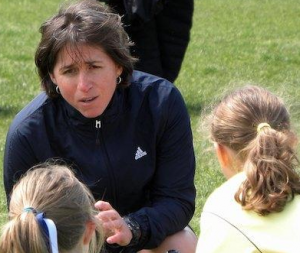Youth Soccer Learning Outcomes: How Well Are We Assessing Our Players?
Dr. Dina Gentile on the importance of proper assessment planning for youth soccer clubs.
Each year after the fall season ends I get a number of calls regarding assistance in organizing player evaluations, tryouts, or team selections. The first question I ask the soccer organizer is what type of assessment plan is already in place for the organization. Often times the response is disjointed or lacks the fundamental components of the development of a clear outcome assessment plan for the individual players.

What is assessment planning?
When our players are placed on teams, programs should have in place a curriculum to guide the instruction that is to be provided by the coaches (paid or volunteer). Each coach would need to understand the mission of the organization along with the specific objectives that players can achieve or attain in the specific age group for that team. For starters, opening meetings and resource documents linked on a website can easily assist in communicating the overall goals for the soccer association.
The goal for any youth sport organization is that each coach would have the fundamental ability to teach the specific skills and tactics associated with that age group curriculum. The best way to ensure all players are being exposed to similar developmental experiences is to share practice plans on a weekly basis and implement outcomes throughout each practice plan and season. In addition, youth soccer organizations need to also provide support (third-party coach education) or resources (coaching clinics) to assist coaches in delivering the age/skill appropriate soccer curriculum to the players.
How could our program develop soccer learning outcomes?
Often times volunteer coaches will use or develop a practice plan that lacks links to the curriculum objectives and/or fails to reach stated learning outcomes. Learning outcomes of a practice plan can be defined as what the player should have learned from the activities of the session. We would assess learning outcomes by performance indicators, so we could suggest that 80% of the players at the U9 level can dribble the soccer ball for 20 yards using both feet. Each practice plan should have a purpose; coaches need to ask themselves what they want the players to learn and then achieve after each session.
What are the best practices we can adopt for our town/club program?
Unfortunately, we often place too great of an emphasis on player selections or tryout results when we formulate teams. A snap shot of a 1- or 2-hour time frame may not be adequate to effectively evaluate a player.
Why not? There are some concerns to consider:
- Are the evaluators themselves trained in assessing the particular standard or performance indicator for that station/activity of the tryout?
- Do the evaluators understand the curriculum that is in place for the soccer organization and understand how to measure achievement of the age specific components that are being assessed?
Is there a seamless path from coach development to player development?
What this means is, do all of the practice plans we create for the season align with the assessment tools we are using to evaluate and eventually place players? To simplify, are our practice plans meaningful (outcomes) and how do we know our players are improving (what performance indicators we have in place; for example at U12, 70% of players can chip a ball accurately with both feet).
Does a season-long assessment process exist in your program?
Do the coaches understand the age-specific outcomes (what players should attain at the end of the practice/season) and are the coaches evaluating player progress at midseason and the end of season? Our children are assessed at school over multiple intervals to ensure they are meeting the curricula outcomes. Progress reports and report cards reveal how successful students are in achieving the outcomes by subject matter. Implementing a simple process of evaluating the key outcomes by age that is incorporated into the player selection process can serve to give the player the best chance to be placed on the skills-appropriate team.
The task of creating an assessment plan for a youth sport organization may seem like a daunting task. Many associations already have all of the pieces of the puzzle in place and the only aspect that is lacking is creating that link between coach education and player development. As we have a short break until the start of the next season, try to assembly a group of administrators who can devote time to developing and communicating the mission of the program and age groups, develop soccer learning outcomes by age, and create practice plans that coaches can utilize to ensure our players are learning/performing the skills appropriate to age and skill.
SoccerToday columnist Dr. Dina Gentile is a Professor of Sport Management at Endicott College. A volunteer youth coach herself, Dr. Gentile understands from both practical and theoretical experience what happens on the soccer field. Gentile has also coached the Endicott College Soccer Team for 11 years. Gentile is also the owner/director of Precision Soccer, LLC, which operates camps, clinics, and coach education training throughout the year. She is a former All-American and Academic All-American at Adelphi University. Gentile has been inducted into the Adelphi University and Endicott College Halls of Fame. In addition, she is a trainer with Positive Coaching Alliance and the Girls Program Director with New England Premiership Club – Benfica USA. She is the proud coach of her daughter’s and son’s soccer teams in Massachusetts.





